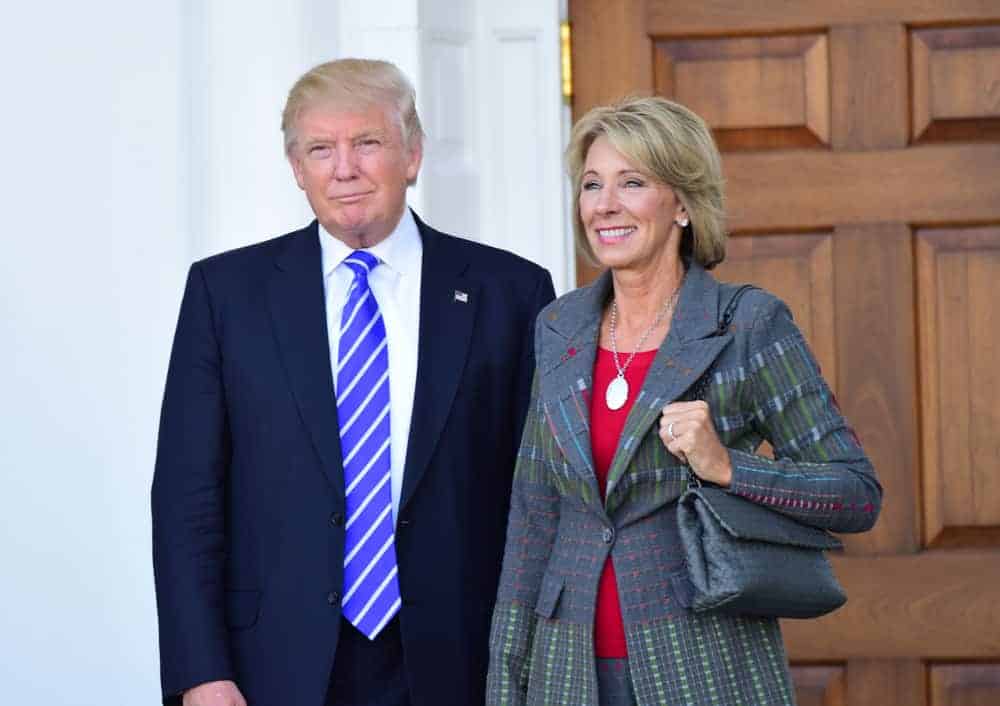

Even as he stirs up the political atmosphere with his Twitter turbulence, President Trump has found a way to forge bipartisan agreement on an issue critical to the nation’s future: support for schools, colleges, and universities. Once again, he has proposed an education budget unacceptable to Republicans as well as Democrats in Congress.
By its accounting, the Trump administration would reduce the U.S. Department of Education’s budget by 10 percent, or $7.1 billion. By the accounting of education policy analysts, the cuts would amount to up to 12 percent, or at least $8 billion. (See articles on the reductions from Alliance for Excellent Education and New America.)
In 2017 and 2018, when Republicans held both House and Senate majorities, the Trump reduce-education-funding budget request was put aside. Now, with Democrats holding a House majority, the administration’s budget will get an even cooler reception. In the often-coarse parlance of Washington, it was “dead on arrival.”
What’s more, the U.S. government contributes far less to American schooling than state and local governments. Federal funding accounts for 8 percent nationally — about 12 percent in North Carolina.
If the proposed budget has no chance of enactment, and the federal share of education support is so slender, why pay attention to what Trump has proposed? The answer, of course, is that a government budget reflects the priorities and values of those who design it.
Informed by his experience as an education-reform governor of Texas, Republican George W. Bush initiated No Child Left Behind. Informed by his experience observing big-city schools in Chicago, Democrat Barack Obama offered Race to the Top grants to states, as well as encouraging charter schools.
What the administration describes as “the most transformative education proposal in the president’s budget request’’ would take the nation down another path. It would provide a tax credit for “voluntary donations’’ from individuals and businesses to a Treasury fund, which would provide up to $5 billion per year in “scholarships’’ for both public and private education. The proposal is in keeping with the administration’s overarching promotion of “choice.”
The president also proposes an increase in funding for charter schools and magnets, and for more federal support of school safety measures. He would convert existing support for teachers’ professional development to “vouchers’’ for teachers to purchase their own enrichment education.
His budget also lists 29 programs for “elimination”: for example, extra out-of-classroom assistance to students in high-poverty, low-performing schools, literacy instruction, after-school programs, college awareness and preparation for low-income students, and arts and civic education.
In addition to “choice,’’ the president’s budget is also guided by an impulse to diminish the federal role. And, to be sure, dissatisfaction over No Child Left Behind and Race to the Top led to the Every Student Succeeds Act, signed by President Obama, that rests on the premise of a return to greater state-local responsibility.
And yet, in North Carolina as well as more than half the states, combined local-state K-12 funding has not returned to pre-Great Recession levels. The Washington-based Center on Budget and Policy Priorities points out that North Carolina boosted state per-student funding by 3 percent in 2018, but the state remained below — by 7 percent — its pre-recession funding in inflation-adjusted dollars.
Even if President Trump has priorities other than public education, the great debate over schooling matters greatly to North Carolina’s success as one of the nation’s 10 largest states. Even as it’s “dead on arrival’’ in Congress, the administration’s education budget serves as an indicator of the degrading of day-to-day governance amid the turbulence of the Trump presidency.


